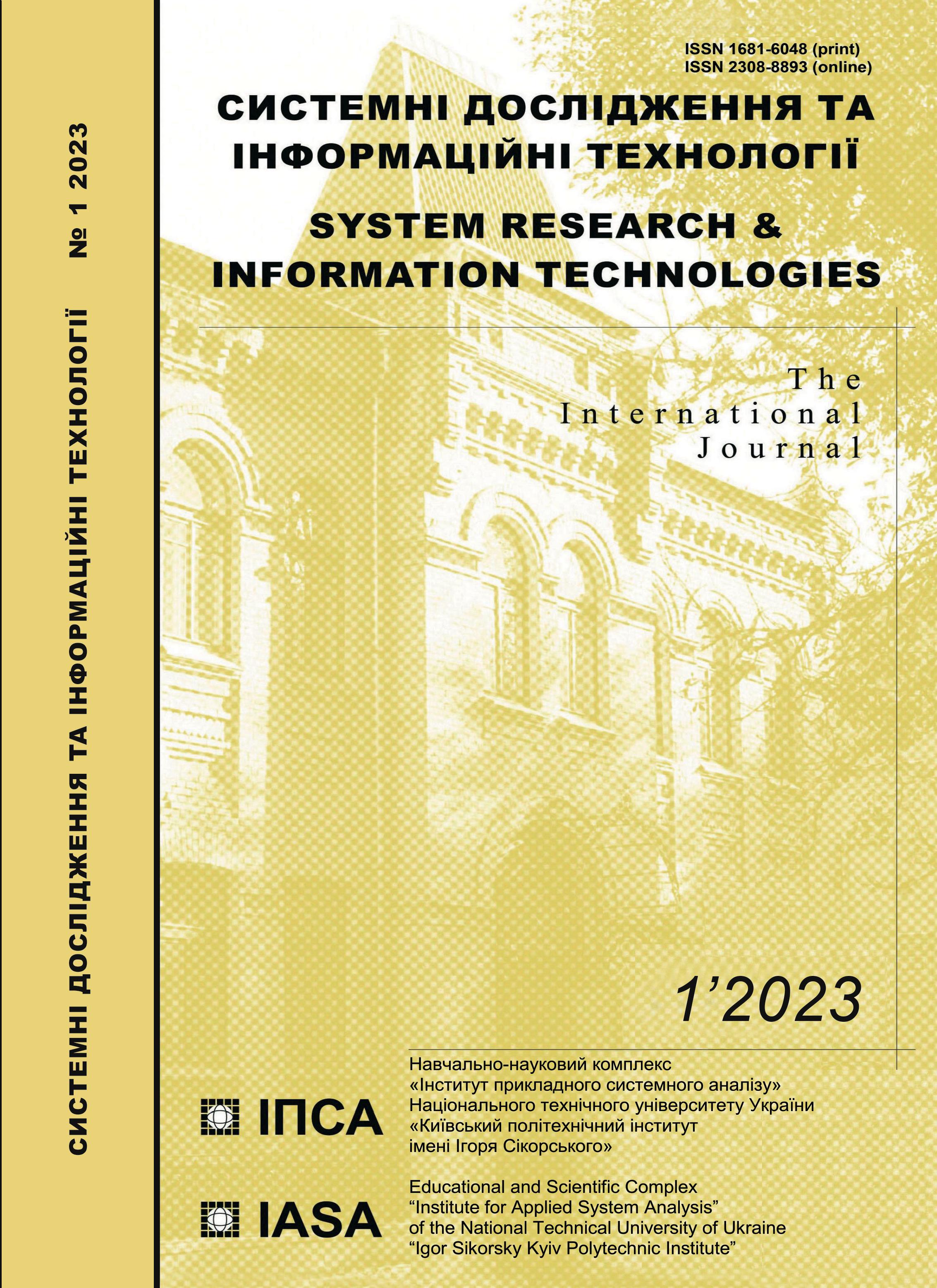Generalization of the thermodynamic approach to multi-dimensional quasistatic processes
DOI:
https://doi.org/10.20535/SRIT.2308-8893.2023.1.05Keywords:
quasi-static processes, equilibrium thermodynamics, mathematical modeling, work, energy, controllability, entropyAbstract
A method of mathematical modeling of multidimensional quasi-static processes, a generalization of quasi-static processes of equilibrium thermodynamics, is proposed and substantiated. The authors obtain a generalization of the first and the second law of thermodynamics in the form of Carathéodory to multidimensional quasi-static processes. The idea of generalization is to construct an orthogonal system of functionals similar to the work and heat functionals of classical thermodynamics along families of phase trajectories corresponding to different types of influences on a multidimensional quasi-static system. The representation of quasi-static processes by systems of ordinary differential equations containing control variables is substantiated. The obtained results make it possible to use a wide arsenal of methods of the theory of control of dynamical systems to solve problems of control of quasi-static processes.
References
M. Plank, Thermodynamics. Leningrad-Moscow : GIZ, 1925, 311 p .
S. Carnot, Reflections on the driving force of fire and machines capable of developing this force: Series “Classics of natural science”. Moscow: Kniga po Trebovaniju, 2013, 80 p.
R. Clauzilus, “Mechanical theory of heat. Mathematical introduction,” The second law of thermodynamics. Moscow-Leningrad: Goztekhizgrad, 1934, pp. 73–157.
K.A. Putilov, Thermodynamics. Moscow: Kniga po Trebovaniju, 2013, 375 p.
R. Kubo, Thermodynamics. Moscow: Mir, 1970, 304 p.
A.A. Gukhman, On the foundations of thermodynamics. Moscow: LKI, 2010, 384p.
G.V. Averyn, System Dynamics. Donetsk: Donbass, 2014, 403 p.
A.S. Kutsenko, “Optimal control of thermodynamic processes,” Mechanics and machine building, no.1, pp. 93–97, 1999.
A.S. Kutsenko, “Equilibrium thermodynamics from the point of view of control theory,” Integration technologies and energy saving, no.4, pp. 35–41, 2001.
A.S. Kutsenko, S.V. Kovalenko, and V.I. Tovazhnyanskii, “Structural and Parametric Synthesis of a Stabilization System for a Quasistatic Technological Process,” Bulletin of the National Technical University “KhPI”. Series: System analysis, management and information technology, no. 58 (1167), pp. 24–28, 2015.
K. Carathéodory, “On the foundations of thermodynamics,”Development of modern physics. Moscow, 1964, pp. 188–222.
P.T. Landsberg, “On Suggest Simplification of Carateodory’s Thermodynamics,” Phys. Status Solidi, vol. 1, no. 2, pp. 120–126, 1961.
G.V. Averin, A.V. Zvyagintseva, and M.V. Shevtsova, “On the Question of Substantiation of Thermodynamic Statements by the Method of Differential Geometry of Multidimensional Spaces,” Scientific statements of NRU BelSU, Ser. Mathematics, Physics, issue 45, no. 27(248), pp. 36–44, 2016.
G. Falk and H. Jung, Axiomatik der Thermodynamik. Handbuch der Physik, III/2, pp. 119–175, 1959.
E.H. Lieb and J. Yngvason, “The phisics and mathematics of the second law of thermodynamics,” Physics Reports, vol. 310, no. 1, pp. 1–96, 1999.
Yu.N. Andreev, Control of finite-dimensional linear objects. Moscow: Nauka, 1976, 424 p.
N.I. Belokon, Thermodynamics. Moscow–Leningrad: Gosenergoizdat, 1954, 416 p.
I. Gorn, Introduction to the theory of differential equations with partial derivatives. Moscow: GONTI NKTP USSR, 1938, 274 p.

